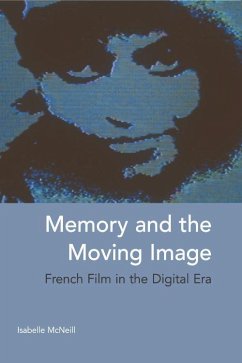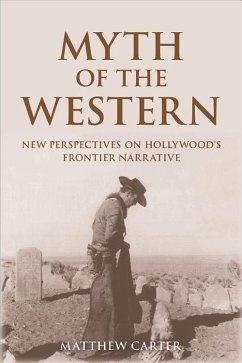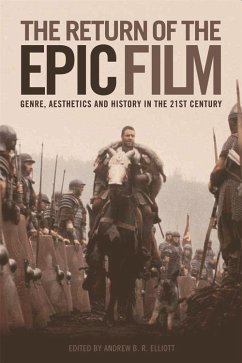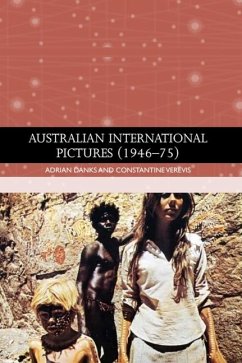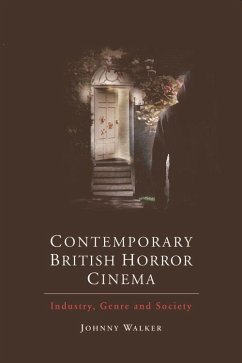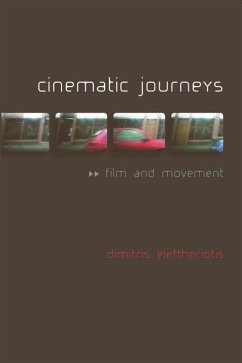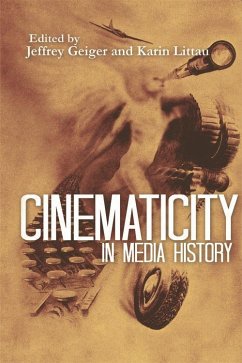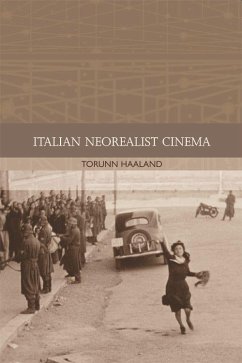
Death and the Moving Image
Ideology, Iconography and I
Versandkostenfrei!
Versandfertig in über 4 Wochen
30,99 €
inkl. MwSt.
Weitere Ausgaben:

PAYBACK Punkte
15 °P sammeln!
'Through a series of sophisticated and highly nuanced readings of a wide range of films, Michele Aaron exposes the mortal economies on which cinema depends. This important book will cause readers to think again about the ethical and political stakes of the filmic treatment of death in mainstream cinema and beyond.' Sarah Cooper, King's College London 'This compelling and exhaustive study will be a must read for scholars working at the intersection of visual culture and studies of death. Michele Aaron moves through several genres of film and spans the production of films from the 1940s into the...
'Through a series of sophisticated and highly nuanced readings of a wide range of films, Michele Aaron exposes the mortal economies on which cinema depends. This important book will cause readers to think again about the ethical and political stakes of the filmic treatment of death in mainstream cinema and beyond.' Sarah Cooper, King's College London 'This compelling and exhaustive study will be a must read for scholars working at the intersection of visual culture and studies of death. Michele Aaron moves through several genres of film and spans the production of films from the 1940s into the 21st century. Specifically, she argues that there is a pervasive aesthetic of self-risk in cinema, a death-drive that secures our several understandings of how contemporary culture masks its own political ends. Moving beyond the psychoanalytic, Aaron ultimately and convincingly demonstrates that it is the ethical in cinema that continues to be denied its proper place, even in the midst of its centrality in the genre. This is bold and welcomed new work.' Sharon P. Holland, Duke University Death and the Moving Image provides the first in-depth study of the representation of death and dying in mainstream Western cinema from its earliest to its latest renditions. It explores the impact of gender, race, nation and narration upon death's dramatics on-screen and isolates how mainstream cinema works to bestow value upon certain lives, and specific socio-cultural identities, in a hierarchical and partisan way. Dedicated to the popular, to the political and ethical implications of mass culture's themes and imperatives, this book takes mainstream cinema to task for its mortal economies: for its adoration and absolution of some characters and expendability of others. It also ultimately disinters the capacity for film, and film criticism, to engage with life and vulnerability differently. Aimed at the burgeoning field of death studies and explosion of interest in trauma and ethics within film studies, this book charts important new territory for the discipline whilst arguing for the centrality of this subject to the socio-political significance of cinema. Key Features - Examines the formal, psychological and political exchange between cinema and death - Accessible 'before, during, after' structure, of death's presence as narrative promise, physical event and spectatorial reaction. - Comparative and interdisciplinary approach to film (draws on critical race, political theory and mise-en-scène analysis and case studies from beyond Western and fiction film) Michele Aaron is Senior Lecturer at the University of Birmingham where she teaches Film Studies. She has published on ethics and film, queer theory and visual culture, and questions of Jewishness and gender. Cover image: Paradise Now, 2005, Hany Abu-Assad (c) Lumen Films/Lama Prods/The Kobal Collection. Cover design: {EUP logo] www.euppublishing.com




